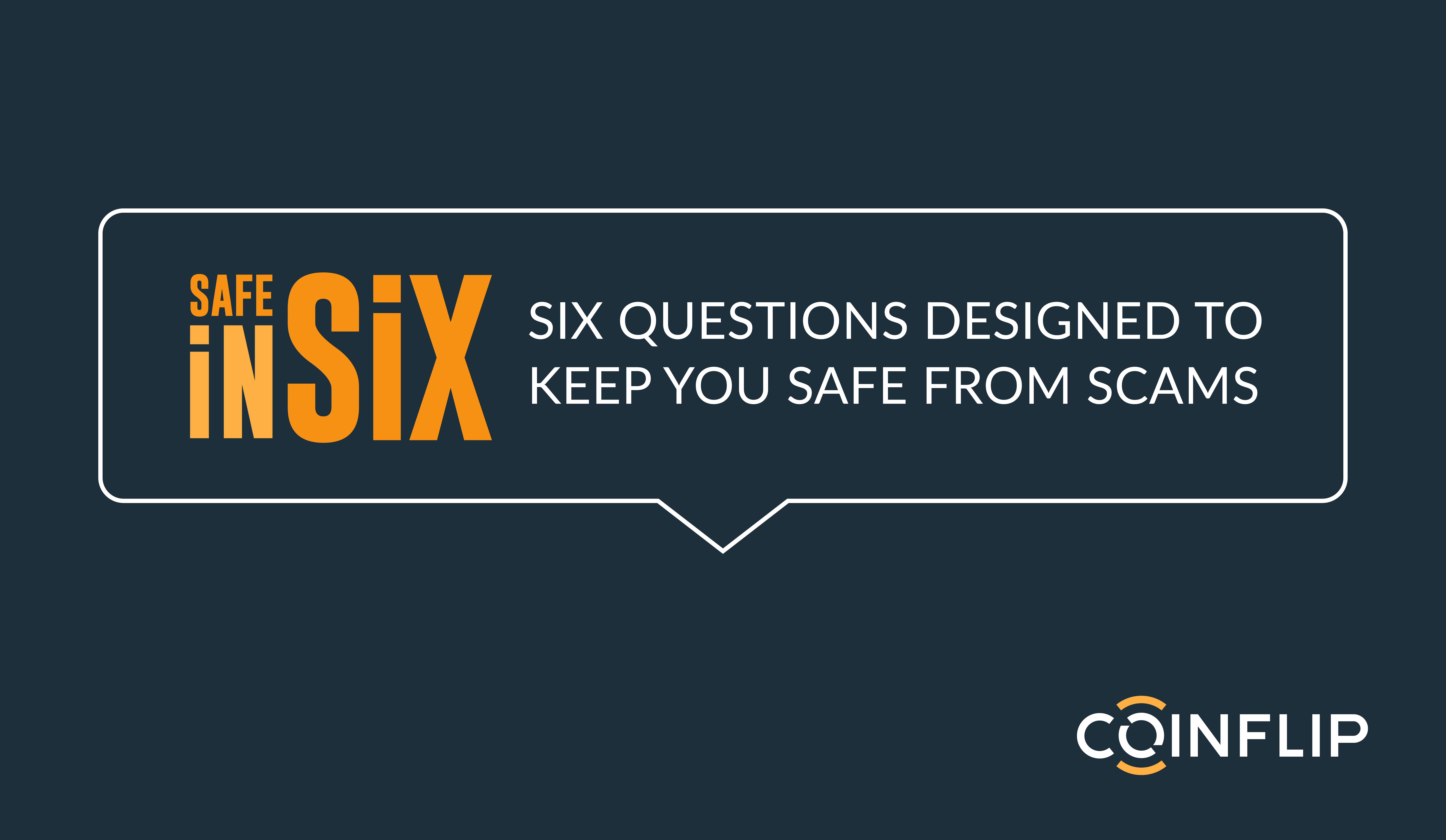Safe in Six – Six Questions Designed to Keep You Safe from Scams
Share
Financial scams are among the most common crimes affecting U.S. adults. A 2023 Gallup poll found that 15% of adult Americans reported having a household member who had fallen victim to a scam. Today’s online scams are run by sophisticated criminal networks that, over the years, have refined their methods and targets to extract maximum gains from victims of all ages. They simultaneously exploit people’s increased comfort using digital platforms, their lack of knowledge on how these platforms work, and new technologies that make it hard to discern the real from fake. According to the Federal Trade Commission, scam victims aren’t just vulnerable older adults, but span the age spectrum, and one in four people who reported losing money to fraud indicate that the fraud originated on a social media platform*.
What’s the solution to this growing problem?
The best antidote to combatting online fraud is to be educated and aware. That's why CoinFlip developed our ‘Safe in Six’ threshold test for scams. These six questions are designed to get people to slow down, create mental red flags, and think before making any decisions to act. Scammers operate successfully when they can create a deep sense of urgency. Why? Because if you’re rushing around scared or panicked, you won’t make good decisions. Scammers depend on that. ‘Safe in Six’ is designed to make you pause and think before acting. Before initiating a transaction, ask yourself:
Are you being asked to make an unsolicited financial transaction by an unknown third-party? If so, STOP.
Are you being urged to act quickly and/or in secrecy, under the threat of harm in order to satisfy a request from someone unfamiliar? Are you being instructed to lie? If so, STOP.
Are you being asked to pay a government fine, a utility bill, a warrant or bail using a new and unfamiliar payment method like cryptocurrency or gift cards? If so, STOP.
Does the offer sound “too good to be true” or feel like an “easy money” investment? If so, STOP.
Is someone you’ve initiated a romantic relationship with online now asking you to transfer or deposit money into a kiosk or other bank account as a condition of the relationship? If so, STOP.
Is someone asking you to pay or use cryptocurrency to secure a job offer, clear a virus from your computer, clear an arrest warrant, jury duty notice, or to secure your bank account? If so, STOP.
If at any point in time, your situation mirrors or touches on any of these areas, the best course of action is to STOP. Think about the situation you’ve been presented. Call a trusted friend or relative. If you feel in danger or if a loved one is under threat, immediately call law enforcement. If it feels out of the ordinary, it’s likely a scam.
At CoinFlip, we know how important it is to always be on high alert for potential scams. We collaborate with local and federal law enforcement to ensure that we continuously update our highly visible fraud warnings at our kiosks and display the most updated information regarding scams. But we don’t stop there.
CoinFlip’s Customer Support Team undergoes regular training so that they know how to identify when a customer may be a victim of a scam. Additionally, all employees undergo annual cybersecurity training to ensure they don’t fall victim to social engineering or other phishing scams that could put your data at risk. Altogether, our team is armed with the latest information on scams so that we can be a crucial line of defense for our customers.
The more you know about scamming tactics, the better you’ll be at protecting yourself and your loved ones. Education and awareness are the most potent weapons in the war against fraud. Staying safe online has never been harder but using our ‘Safe in Six’ method can help ensure that you stay one step ahead of the bad guys.
Share

